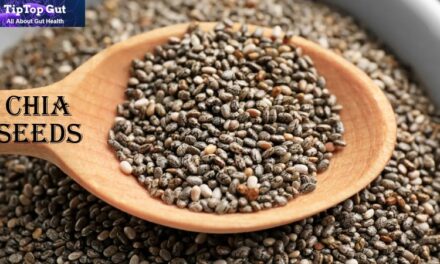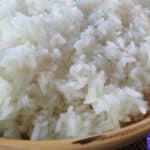Green tea has been considered a miracle worker.
Green tea, popular in Asia for centuries, has been praised as a superfood because of its health benefits, including increased immunity, bone density, protection from cancer, brain health improvement, and many other health benefits. Green tea is becoming more popular in the West due to novel reasons. It is often infused with commercially-sold goods such as candy and gimmicky beverages.
So, is green tea good for gut health?
Let’s explore scientific studies and trials about green tea and gut health.
Is Green Tea Good for Gut Health?
Tea is one of the most consumed beverages around the world and has potential to influence gut microbes because it contains polyphenols, catechins, flavones, anthocyanins, and phenolic acids, etc.
Green tea influences the gut microbiota by stimulating the growth of specific probiotic species in your gut. At the same time, catechins and other green tea content feeds your gut bacteria and behave like prebiotics. Gut bacteria can metabolize green tea compounds and produce smaller bioactive molecules. Accordingly, green tea benefits are based on these beneficial bacteria and microbial bioactive metabolites.
According to a number of studies and trials, it’s confirmed that green tea is good for gut health because it promotes probiotics in your gut and limits the harmful probiotics species.
Let’s explore different benefits of green tea for gut health.
Why Green Tea is Good for Gut Health?
Many studies recommend that the gut microbiota act as middle man for, at least, some of the green tea benefits on health. Many health promoting effects of green tea seems to be related to the inter-relation between green tea and gut microbiota. Green tea has proven to be able to correct the microbial dysbiosis that appears during several conditions such as obesity or cancer.
On the other hand, tea compounds influence the growth of bacterial species that are involved in inflammatory processes such as the release of LPS or the modulation of IL production; thus, influencing the development of different chronic diseases.
Recent research has shown that green tea may be one of the best foods to improve your gut microbiome. Following are the reasons why green tea is beneficial for gut health.
Green Tea Works as A Prebiotic
Green tea is known to improve gut health and promote healthy bacteria. Ohio State University has found evidence that green tea promotes the growth of beneficial gut bacteria. Catechins, plyphenols and other content in green tea become the food of your gut microbiome and promote healthy probiotics.
This can lead to many benefits, including a lower risk of obesity. This can lead to a decrease in intestinal permeability, commonly referred to as a “leaky stomach.” Although further research is needed to determine how much tea one should drink to reap these benefits.
Green Tea Improves Digestion.
Green tea is high in polyphenols. This helps the body to improve its digestion process. Polyphenols, which are compounds that aid in digestion, can be found in tea plants. It’s not surprising that green tea is a common ingredient in many other health and wellness drinks. Green tea is a great way to improve digestion and can be enjoyed regularly.
Green Tea Reduces Food Allergies
Recent research in Japan has revealed that certain microbes found in the gut can alter how the body reacts to allergens, a tea expert, led the team to discover that Flavonifractor is a Clostridia strain. These bacteria have been shown to improve the immune system and reduce inflammation. F. plautii can be triggered by green tea’s catechin antioxidant and can suppress a certain group of immune cells known as Th2, which are responsible for food allergy reactions.
Although more research is needed to confirm whether green tea can fight food allergies, this is an important step.

Read More:
Best Herbal Tea for Gut Health: 15 Best Teas for Gut & Digestive Health
Green Tea Extract can Lower Blood Sugar and Improve Gut Health!
A new study in patients with a group of risk factors for heart disease has shown that green tea extract can lower blood sugar and improve gut health. It is also known to reduce inflammation and decrease “leaky gut.”
This is the first study to assess whether green tea’s anti-inflammatory properties in the gut may reduce the risk of metabolic syndrome. It affects approximately one-third of Americans.
Professor of Human Nutrition at The Ohio State University said there is a lot of evidence that green tea consumption is linked to higher cholesterol levels, glucose, and triglycerides. However, no studies have linked it to these health factors.
As a follow-up to a 2019 study in which green tea supplements were associated with lower obesity and lower health risks in mice, the team conducted a clinical trial on 40 people.
The new study found that green tea extract reduced blood sugar (or glucose), gut inflammation, and permeability in healthy individuals – an unexpected result.
We can lower blood glucose within a month in people with metabolic disorders and healthy people. The lowering of blood sugar appears to be linked to decreasing leaky gut and inflammation, regardless of your health status.
Recent articles in Current developments in Nutrition have published articles on glucose results, lowered gut permeability, and inflammation.
Metabolic syndrome is a condition in which a person has excess belly fat, high blood sugar, low HDL (good), cholesterol, and high fasting glucose and triglycerides (a type of fat) are all diagnosed.
Bruno stated that although these risk factors are not often severe and don’t require medication management, they pose a significant health risk.
“Most doctors will recommend exercise and weight loss at first. He said that most people are unable to follow lifestyle changes for various reasons. “Our goal is to provide people with a new food-based option to reduce their risk of developing metabolic syndrome.
For 28 days, forty participants, 21 of them with metabolic syndrome and 19 others who were healthy, consumed gummy confections that contained green tea extract rich. Five cups of green tea were consumed daily. All participants were allowed to continue the double-blind crossover trial for another 28 days. They also received a placebo with a one-month discount on any supplements.
Researchers found that participants followed a low-polyphenol diet – naturally occurring antioxidants in vegetables, fruits, and teas – during the study’s placebo and green tea extract confection phase of the study. Therefore, any results could not be attributed solely to green tea.
All participants had significantly lower fasting blood glucose levels after drinking green tea extract than levels following the placebo. An analysis showed that green tea extract treatment led to a decrease in gut inflammation in all participants.
Researchers used a technique to measure sugar levels in urine samples and found that participants’ small intestine permeability was favorably reduced when they consumed green tea.
The new study found that green tea extract reduced blood sugar (or glucose), gut inflammation, and permeability in healthy individuals – an unexpected result. The image is public domain.
A leaky gut (or gut permeability) allows intestinal bacteria and other toxic compounds to enter your bloodstream. This causes low-grade chronic inflammation.
The absorption of gut-derived substances is believed to be a factor in obesity and insulin resistance. This is central to all cardiometabolic diseases. “If we can improve gut health and reduce leaky gut, we may be able to alleviate the low-grade inflammation that causes cardiometabolic diseases and potentially reverse them.
The microbial communities and levels of bacteria-related toxic toxins in the study participants’ blood.
Is green tea beenficial for your gut health?
Did you know the green tea may help to boost the beneficial bacteria in your gut which are linked with a healthy immune system, metabolism, and overall health.
Is green tea good for your gut bacteria?
Green tea can have a positive effect on the microbiota. It can either stimulate the growth of certain species or hinder the development of harmful ones. Gut bacteria can also metabolize green tea compounds to produce smaller bioactive molecules.
Does green tea clean your digestive system?
Although green tea does not actively detoxify toxins, it is packed with natural phytophagous that support the body’s normal detox process. Two ways polyphenols work are: they directly impact your liver, the body’s primary detox organ, and act as antioxidants to fight free radicals.
Is green tea good for inflammation?
Researchers found that green tea extract reduced blood sugar, gut inflammation, and permeability in healthy individuals and those with metabolic syndrome.
Which tea is good for your gut bacteria?
Study results showed that both green and black tea affected the intestinal bacteria ratio in the animals. The percentage of bacteria related to obesity declined while the percentage associated with lean body weight increased.
Who should avoid green tea?
Green tea should be avoided by pregnant and nursing women and children under 2 years old, people suffering from heart disease, kidney problems, stomach ulcers, psychological problems, and those with heart conditions. Green tea should be avoided by people with diabetes, anemia, liver disease, and osteoporosis.
Are green tea and probiotics compatible?
Green tea is prebiotic that provides the proper nutrition for your good bacteria.
What are the side effects of green tea?
Caffeine in green tea can lead to side effects. These side effects include anxiety and tremors. These side effects are more common if you are sensitive to caffeine and take high doses. Green tea has fewer side effects than other beverages that contain caffeine.
What happens if I have green tea every day?
Green tea is full of healthy compounds. Green tea is a great way to lose weight and lower your risk for many diseases such as diabetes and heart disease. Green tea is consumed in small amounts, such as three to five cups daily.
Read More:
Best Herbs for Gut Health: Boost Gut Health With Herbs (2022)
How to Restore Gut Health After Antibiotics: 5 Best Ways Backed by Science
Are Cooked Tomatoes OK for IBS? Shocking Facts Exposed (2022)
Best Over the Counter Probiotic for Gut Health: Easy Guide 2022
Best Cheese for Gut Health: 11 Healthiest Cheeses for Gut Health
Scientific Studies and References
- Insider.com
- BBCGoodFood
- NCCIH.NIH.GOV
- Pérez-Burillo S, Navajas-Porras B, López-Maldonado A, Hinojosa-Nogueira D, Pastoriza S, Rufián-Henares JÁ. Green Tea and Its Relation to Human Gut Microbiome. Molecules. 2021 Jun 26;26(13):3907. doi: 10.3390/molecules26133907. PMID: 34206736; PMCID: PMC8271705.
- OpenAccessGovernment
- ScienceDaily
- Nature.com
- Bond T, Derbyshire E. Tea Compounds and the Gut Microbiome: Findings from Trials and Mechanistic Studies. Nutrients. 2019 Oct 3;11(10):2364. doi: 10.3390/nu11102364. PMID: 31623411; PMCID: PMC6835862.

















